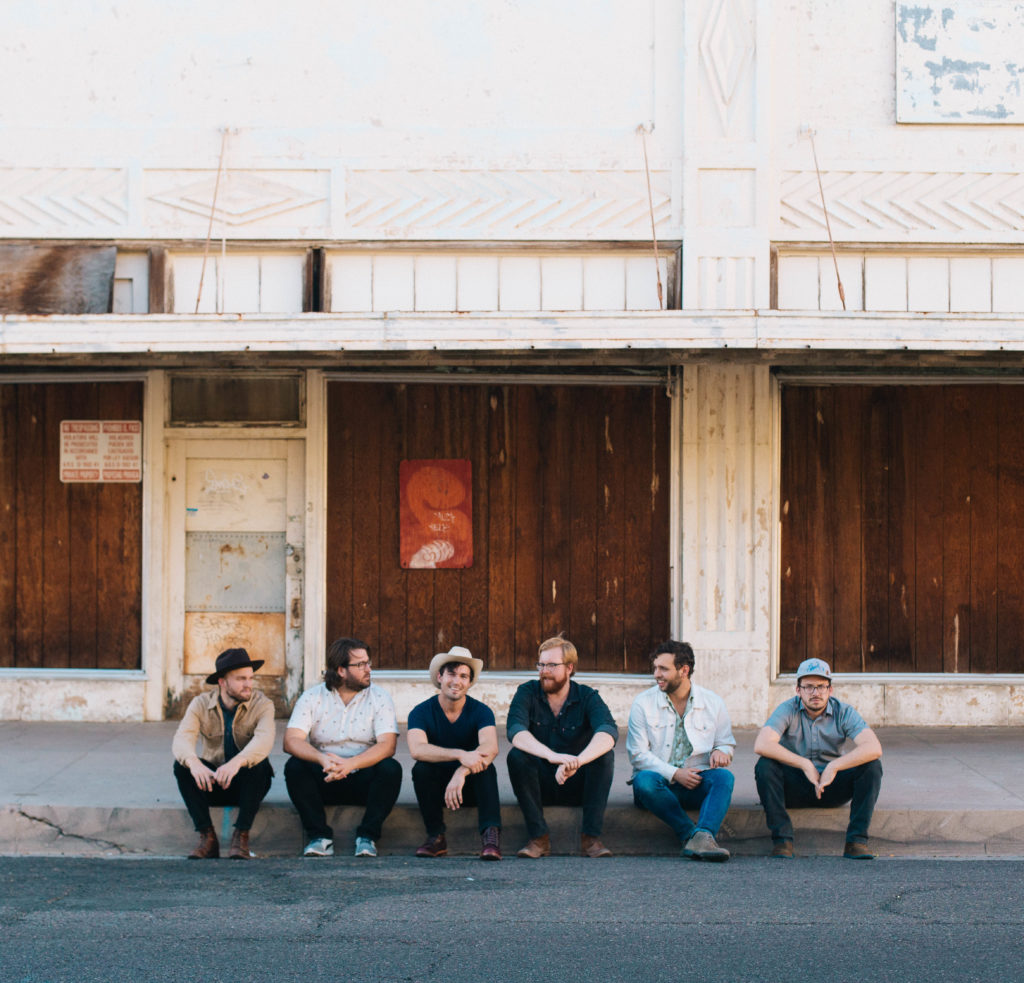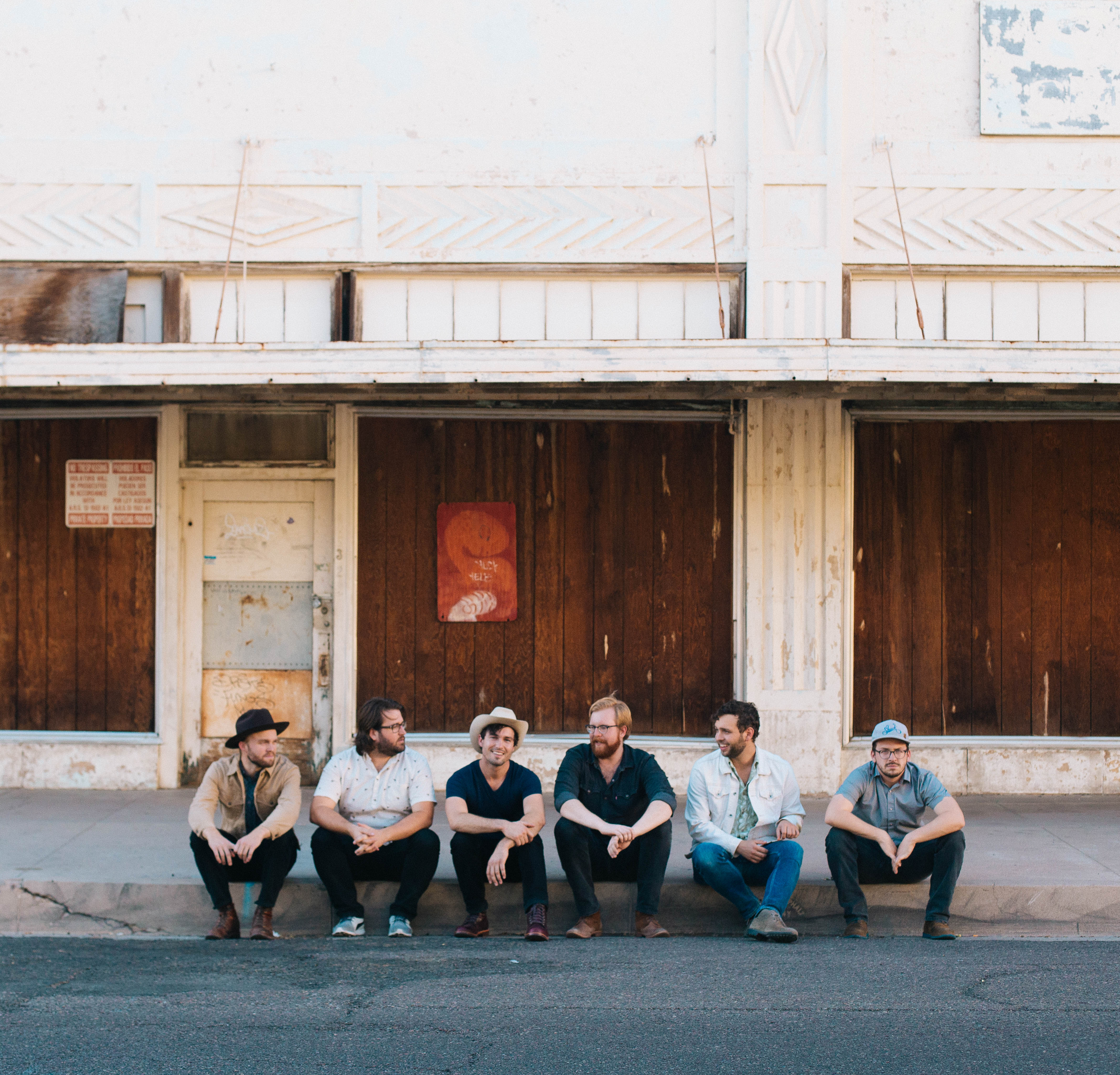Jared and The Mill – Homesick and Happy: An Interview with Jared Kolesar
Jared and The Mill come from Phoenix, Arizona and spend a good part of the year traveling the country, bringing their brand of indierockwesternamericanafolkrock to enthusiastic and devoted crowds. They have a new EP, Orme Dugas, that drops on Friday, September 9. It’s a strong collection that is both introspective and open. I especially love Michael Carter’s banjo playing on the album, and the way the whole band brings a song up and down. The music is at times anthemic and at times spare and restrained; it’s the mark of a group that is in control, knows what they want and how they want to convey themselves. This EP is the band’s third release and you should definitely give it a listen. We got to talk with Jared Kolesar, lead singer, guitar player, and one of the primary songwriters for the band before they hit the stage in Chicago.

RLR: There’s a big sound on this EP. How do the songs evolve – is it one of you working out most of it and then everyone finds their part and contribution, or do you end up collaborating earlier in the process?
JK: Usually, someone brings a song to the table, with the chords and lyrics and melody worked out and everybody else adds parts that are appropriate. In our band, everybody has the ability to contribute so we’re pretty open about it.
RLR: This EP has a throughline of movement – the narrator in “Song for a Girl” calls himself a wanderer, the first song, “Lost, Scared, and Tired,” describes hard miles on the road, and the EP is named for an exit near Phoenix. Can you talk about this sense of how physically shifting location informs the songs?
JK: We all grew up in Arizona and lived here through HS and college. And then we just snapped immediately into touring life and it’s hard for it not to affect every aspect of your life. We are constantly on the road and pushing it, because we’re hard working, and because it’s who we are. We feel like we got catapulted into this big adventure that we didn’t really ask for and we’re this traveling brotherhood.
RLR: Speaking of being catapulted, you’ve played small venues and opened for Zac Brown and Barry Gibb in big arenas. In his book How Music Works, David Byrne writes about how space impacts music. How has playing in these different spaces impacted your work?
JK: We toured with Barry Gibb, playing arenas, and then the next night we’re playing a dive bar, with shitty beer on tap. Our music is a combination between those two environments: we’re a rock band and western alternative band, and it works in small, 150-person dive bars as well as bigger arenas.
It can be tough to not be intimidated by massive crowds. I don’t get stage fright, really; the only time I’ve had stage fright was paying at my high school graduation. But 15,000 people looks more like a painting and you think how do I connect to people in the farthest rows?
RLR: You’ve said, “Everyone should be a little homesick in their lives,” as an important part of becoming who you’re meant to be. I’m really interested in this idea and wonder if you can just expand on it a little bit and how homesickness has shaped your work.
JK: Well, it’s well documented that conflict makes for personal growth. It’s one thing to do karaoke if you’re nervous in front of people. And that’s good, and you have that experience, and afterwards you go home and back to people you love. For us, on the road, we break out of our shell every night and there’s no space space. But we’re better for it. We’ve become like brothers and we take care of each other.
It’s too bad because particularly American youth live in a coddled environment. In Australia, parents save money so kids can go backpacking in Europe; it’s a really common thing. It holds such a value for them because you won’t find yourself at home. You have to think on your feet and problem solve when you’re out on your own and that’s how you find out who you are. I believe that stronger than anything. No one knows who they are til they go out and find themselves. I can be such a romantic sometimes about this. But, you know [laughs] Lord of the Rings wouldn’t be interesting if Frodo and Sam, you know, when to the council at…Rivendell and gave the ring to Gandalf and he threw it in Mount Doom.
More than that, being out there on the road makes you a more open-minded person because you experience so much. We’re not small town people, but when I go out, I spend time with people I was warned about when I was a ten year-old. And they’re perfectly fine people. I was talking the other night with a couple of people struggling with heroin addiction. And because of that, I can sympathize with that struggle. They’re not bad people, they’re just like you and me. Sometimes you have to separate yourself from your past to see your future.
RLR: In Life We Chose, the tour documentary you all made, there’s a shot of CDs piled up on the van dashboard. There’s John Fullbright, The Barr Brothers, and then several Smithsonian collections, like Classic Old-Time Songs, and Classic Folk Songs. So, I guess the question here is: how do you balance, as an Americana/alt-country act, the push to do something new and the pull to fit in a long tradition of roots music?
JK: We used to find ourselves in that tension, you know, we didn’t want to be refuted by old-time fans. But when we listen to music, it’s pretty eclectic. Iron Maiden, Kanye, Drake. My favorite record of the year is Beauty Behind The Madness, by The Weeknd. You can’t listen to same thing all the time.
We’re heavily affected by a whole variety of sounds and Orme Dugas is a breaking free from a kind of standardized version of folk-rock. It’s cool to have this thing where we are this youthful indie band, but we also feel connected to Western music–not necessarily country, but Western. So we’re bringing the chaotic energy of indie rock to Western music.
Growing up in Arizona there is this wild west mythos and a certain amount of desert mysticism is there. We are able to be authentic because it’s who we are. We don’t have to put on stetsons and costumes to play Western music because it’s who we are.
RLR: Fill in the blank: I used to think ____ and now I think _____.
JK: I used to think I don’t know shit, and now I know I don’t know shit.
Jared and The Mill just played Brighton Music Hall the other night, so if you’re like me, you missed them and you’re disappointed. But they’ll be back around and in the meantime, check out Orme Dugas, out 9/9.
Photo Credit: Kip Welch

